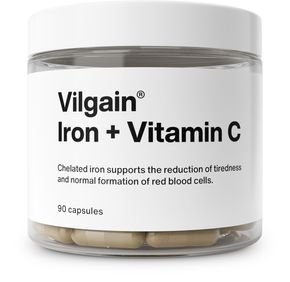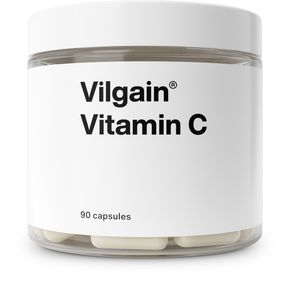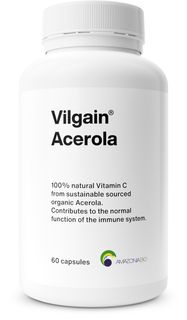


Dietary supplements with vitamin C
Vitamin C is one of the nutrients that the human body cannot make on its own, so its intake is dependent on a varied diet or supplements. Several forms of vitamin C can be found in supplements:
- ascorbic acid - a form of vitamin C found in fruits or vegetables. Its long‑term use can cause stomach irritation;
- ascorbic acid with mineral ascorbates - minerals bound to ascorbic acid that are gentler on the digestive system;
- liposomal vitamin c - is currently considered to be the best quality and most readily available form that readily penetrates cells. Due to the difficulty of production, one will pay a considerable price for this supplement.
Why take vitamin C?
Vitamin C is one of the powerful antioxidants that protects the body cells from free radicals and aging. Furthermore, vitamin C:
- supports the normal function of the immune system,
- contributes to normal energy metabolism,
- improves the ability to absorb iron,
- contributes to the formation of collagen,
- supports normal brain and nervous system function,
- contributes to the reduction of fatigue.
Vitamin C is a sought‑after supplement, especially during flu and cold season, as ensuring normal immune system function may have a preventive effect. However, the results of studies on this topic vary. Taking vitamin C during illness can reduce the duration of illness by a maximum of one day.
How much vitamin C to take?
The recommended daily dose of vitamin C is in the range of 80‑100 mg for an adult. For children, doses starting at 50 mg are recommended. On the other hand, higher doses should be indulged in by athletes, pregnant and lactating women, individuals with illness or undergoing stressful situations.
Vitamin C is classified as a water‑soluble vitamin, thanks to which excess amounts are excreted from our body through urine. Thus, it is difficult, but not impossible, to overdose on vitamin C. The overdose limit is around 2‑3 grams of vitamin C. In these cases, there is a risk of digestive problems or increased risk of kidney stone formation.


